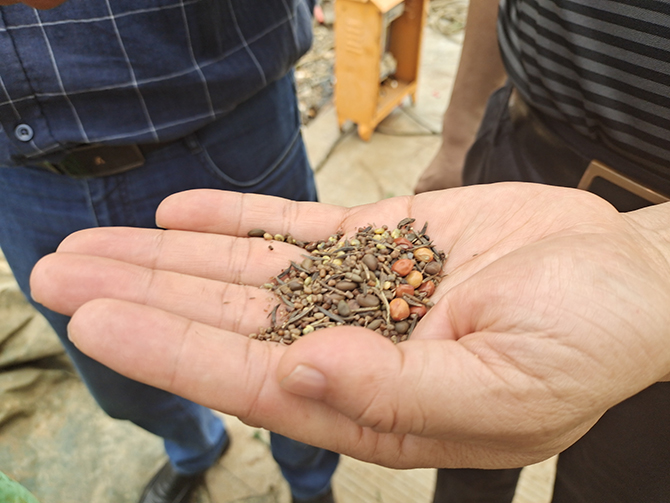Red River valley to have green future via innovation
In building a well-off Xiaokang society in China, Yunnan province is a significant in the nationwide effort to shake off poverty. In the mountainous areas in the Red River valley, south Yunnan’s Honghe County, a group of international scientists are battling hard against local poverty, employing innovative ideas in ecology and agriculture.

“You see it. We’ll enable the roadside slope to be covered be green vegetations within three months,” said Xu Jianchu, director of the valley-based Mountain Futures Research Centre, who is also a chief scientist with the World Agricultural and Forestry Center.
By importing special plants from South American and Africa, the center aims to sustain local development with scientific innovation, while beautifying the living environment.
For example, loose earth on the barren slopes left by road-construction will be first fixed by specially-made nets and binding agents. Using bacteria and other micro-organisms, the scientists will allow the seeds of grass and bushes to grow fast. This way of treating barren roadside slopes is cost-saving and environment-friendly.

Formerly known as “Centre for Mountain Ecosystem Studies” (CMES), the Mountain Futures Research Centre was jointly established by World Agroforestry (ICRAF) and the Chinese Academy of Sciences (CAS) in 2004.
Xu added that his research centre has five professors, two internationally “highly cited” scientists and 12 postdoctoral researchers. Focusing on recyclable agriculture, ecoagriculture and Yunnan-featured agriculture, they follow closely the latest results in international scientific innovation and put them into local practice in building a well-off society.
The mountains make the cradle of eco-civilization. To offer new schemes for recyclable agriculture and eco-industries, the center focuses on sustained development in building modern agricultural pilot zones, cultivating seedlings, innovating growing resources and treating kitchen trash in bulk.

Such concepts are appealing to scholars, and Wang Zhenghong, who is a doctoral candidate on soil ecology, has been doing field work at the center since 2017. “Changes of carbon in the soil will influence the carbon changes in the air, and the general recycle mode advocated by the centre is made up of by mini-cycles by individual elements.”
Xu Jianchu noted that recyclable development in the mountains has been their pursuit. At the backdrop of building a well-off society in Yunnan, they hope to diversify solutions for green and sustained growth, revitalizing the Red River valley and embracing the idea that lush mountains and lucid water are invaluable assets.

Reporting by Li Hengqiang, Wang Huan and Li Zha; trans-editing by Wang Shixue